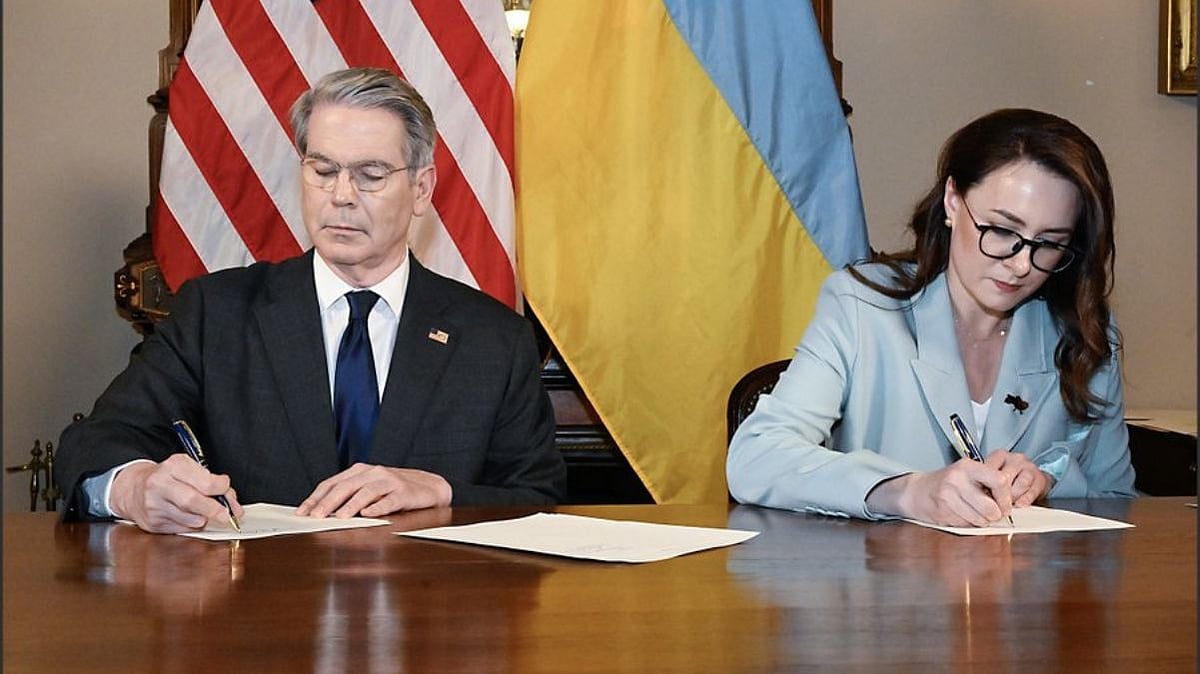US & Ukraine Sign Economic Partnership Agreement Granting Rare Earth Access To Washington In Return For Reconstruction Fund | X @USTreasury
The Ukraine-US minerals deal struck on Wednesday pursuant to fraught negotiations for months raises the prospects for a peace process to end the longest war in Europe in 80 years. At the very least, the development signals a return to civility after negotiations were derailed following an acrimonious exchange in February in the White House between president Donald Trump and president Volodymyr Zelensky.
That bitter and widely publicised spectacle led Washington to abruptly, although temporarily, withdraw all military aid and suspend intelligence sharing with the Ukrainian defence forces.
The United States-Ukraine Reconstruction Investment Fund provides Washington access to the proceeds from the extraction of Kiev’s rare earth minerals. The pact, thus, marks another important step in President Trump’s larger gambit to secure dominance over China in the procurement of critical metals, similar to an agreement with the Democratic Republic of Congo.
Under its terms, Ukraine would determine the natural resources apt for extraction within the framework of an equal partnership, joint management and the reinvestment of all the profits within the country for the first decade. Crucially, first deputy prime minister Yulia Svyrydenko has allayed concerns that the agreement was consistent with Ukraine’s national sovereignty, the constitution and the country’s aspiration for integration with the European Union.
Wednesday’s agreement removes one highly contentious US demand—that Ukraine cede control over its mineral wealth in exchange for military and financial aid worth billions of dollars incurred during the 3+ year Russian aggression.
The stance had strong echoes of president Trump’s transactional approach, where he frequently castigated NATO (North Atlantic Treaty Organisation) countries as free-riding on American largesse. President Zelensky had forcefully countered that the American demand would impose an immense burden on his country for generations.
Observers had cautioned that such stringent terms would expose Washington to the criticism of driving an extortionate bargain and being an unreliable ally out to exploit a vulnerable state.
President Zelensky has emphasised that American military security guarantees for Ukraine’s future had always been a precondition for the conclusion of an agreement on access to the country’s minerals. In the event, commentators are not certain that Wednesday’s agreement contains explicit language on the extent of Washington’s commitments to deter Russian aggression. On the contrary, president Trump had previously baulked at such a demand, insisting that the existence of American economic interests on Ukrainian soil had the potential to ward off any threats.
There is understandable scepticism in European circles that the minerals deal by itself might not lead to desired outcomes unless it is backed up by a credible ceasefire, if not an effective truce, between Ukraine and Russia. The Trump administration should exert greater political and diplomatic leverage so that Wednesday’s deal endures beyond the 100-day milestone of the president’s second term.
